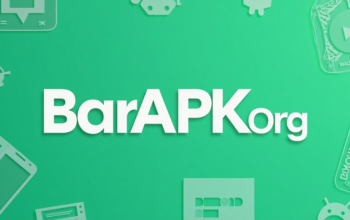
In the ever-evolving digital age, new terms and trends frequently surface, each with its own mystery and allure. One such term that has recently caught the attention of many is Igagony. But what exactly is Igagony? Is it a social media trend, a new technology, or something entirely different? Let’s dive into the possible interpretations and implications of this buzzworthy term.
What is Igagony?
The term Igagony seems to be a portmanteau of “IG” (Instagram) and “agony,” suggesting a possible connection to the emotional struggles or frustrations that people might experience on the popular social media platform. Instagram, with its highly curated images and endless streams of seemingly perfect lifestyles, has been a double-edged sword for many users. On one hand, it’s a platform for creativity, connection, and expression. On the other, it has become a source of anxiety and self-doubt for those who compare themselves to influencers, celebrities, and peers.
Thus, Igagony might represent the emotional turmoil that users feel when navigating the pressures of maintaining an Instagram-perfect life. The constant need for validation through likes, comments, and followers can lead to stress and, in extreme cases, even depression or self-esteem issues.
The Psychological Toll of Social Media
For many people, Instagram is more than just a fun app to share photos and videos. It’s a social hub, a business tool, and sometimes even an identity marker. But with this comes the downsides, often described as social media burnout or Igagony. Constant exposure to idealized versions of other people’s lives can create feelings of inadequacy, envy, and self-criticism.
Studies have shown that prolonged use of social media platforms like Instagram can have adverse effects on mental health. For instance, frequent users are more likely to experience anxiety, depression, and loneliness. This phenomenon may be what’s fueling the concept of Igagony — the agony of never feeling enough, despite carefully curating one’s own content.
Coping with Igagony
If Igagony resonates with your experience on Instagram, it’s essential to take steps to protect your mental well-being. Here are some practical tips to cope with the negative effects of social media:
- Limit Screen Time: Set a daily limit for how long you spend on Instagram to reduce the chances of feeling overwhelmed by constant scrolling.
- Curate Your Feed: Follow accounts that inspire and uplift you rather than those that make you feel inadequate. It’s important to fill your feed with positivity.
- Unplug Regularly: Take breaks from social media to focus on real-life interactions and activities that bring you joy and fulfillment.
- Engage Meaningfully: Instead of passively consuming content, engage with posts and people that matter to you. Authentic connections can make the experience more rewarding.
- Practice Self-compassion: Understand that what you see online is often an edited, idealized version of reality. No one’s life is as perfect as it appears on Instagram.
The Future of Igagony and Social Media
As the digital landscape continues to evolve, so too do the discussions around its impact on mental health. The concept of “Igagony” might gain more traction as awareness grows around the psychological effects of social media. Mental health advocates, influencers, and even social media platforms themselves have started to address these concerns, recognizing the need for a healthier online environment.
Instagram, in particular, has introduced features aimed at mitigating the negative aspects of social comparison. These include hiding like counts, offering time management tools, and promoting mental health resources. However, while these efforts are a step in the right direction, the responsibility largely falls on the users to manage their experiences and ensure that they are engaging with the platform in ways that serve their well-being.
The Role of Influencers in Combating Igagony
 Interestingly, influencers themselves, who are often the source of Igagony for others, are beginning to acknowledge the impact of their highly curated content. A growing number of influencers are opting for a more authentic approach, sharing real-life moments and being transparent about the filters and editing techniques they use. This movement towards authenticity can help reduce the pressures of perfection that many users feel.
Interestingly, influencers themselves, who are often the source of Igagony for others, are beginning to acknowledge the impact of their highly curated content. A growing number of influencers are opting for a more authentic approach, sharing real-life moments and being transparent about the filters and editing techniques they use. This movement towards authenticity can help reduce the pressures of perfection that many users feel.
By showcasing the behind-the-scenes struggles and imperfections, influencers can play a key role in helping others feel less alone in their experiences of self-doubt or comparison. This shift could mark the beginning of a more compassionate online culture, one that emphasizes connection and empathy over unattainable ideals.
Igagony and the Gen Z Experience
For Generation Z, who have grown up with social media as an integral part of their lives, “Igagony” could be especially relevant. This demographic is more likely to experience social media-related stress, given that much of their social identity is tied to their online presence. As a result, they may feel intense pressure to maintain an idealized version of themselves online.
Gen Z is also leading the charge in promoting mental health awareness and destigmatizing conversations around these issues. They are more open about discussing their struggles with anxiety, depression, and self-esteem, often using social media as a platform for these discussions. This openness could help normalize the feelings associated with “Igagony” and provide a sense of solidarity for those grappling with it.
Moving Toward a Healthier Digital Future
As we continue to navigate the complexities of the digital age, the concept of Igagony reminds us that it’s essential to balance our online lives with our offline realities. The pursuit of likes, followers, and aesthetic perfection can only take us so far. Real fulfillment comes from embracing authenticity, vulnerability, and the understanding that social media is just one facet of our lives.
If Igagony becomes a widely recognized phenomenon, it could lead to more conversations about how we use and perceive social media. Platforms may introduce additional tools to promote mental well-being, while users might become more mindful of the content they consume and create. Ultimately, the goal should be to foster a healthier digital environment, one where users feel empowered to share their true selves without fear of judgment or inadequacy.
Conclusion
The rise of Igagony reflects the growing awareness of the emotional toll that social media can take. While Instagram and other platforms offer incredible opportunities for connection, creativity, and self-expression, they also present challenges in the form of comparison, insecurity, and self-doubt. The key to overcoming Igagony lies in finding balance — recognizing that life online is only a part of the full picture, and that true happiness comes from the connections, achievements, and moments we create in the real world.
By being mindful of how we engage with social media, curating our feeds to reflect positivity, and prioritizing our mental health, we can transform Igagony from a source of distress into an opportunity for growth and self-awareness. After all, while the digital world may be powerful, it’s our real-life experiences and connections that ultimately define who we are.
Also Read: UBG365


